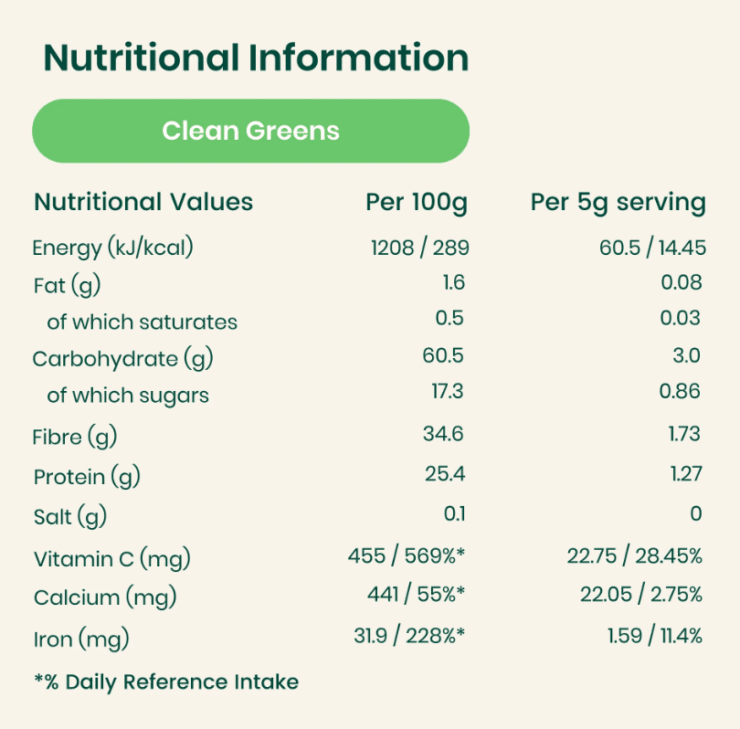3 problems with Green powders.
1.Nutrient Density
Green powders may seem like a convenient way to get in more nutrients, but some of them aren’t even that nutrient dense.
Take a look at the popular brand Rheal Clean Greens. They claim to be a nutritious source of greens, but the actual nutrition per serving provides only 28% of your daily vitamin C, 11% of iron, 3% of calcium, and 6% of your daily fibre needs.

To put that into perspective.
A single kiwi provides 71% of your daily vitamin C and 16% of your daily fibre.
One tablespoon of chia seeds (10g) contains 20% of your daily iron and 14% of your daily fibre.
150g of yoghurt contains 20% of your daily calcium, plus protein and live bacteria.
Combine these, and you have a satisfying snack that betters the Green powder in all aspects.
2. Cost
The cost of Green powders ranges, but perhaps the most expensive and popular brand is AG1. This brand is pushed by several celebrities including the revered science communicator, Dr Andrew Huberman.
AG1 stacks up pretty well compared to other Greens powders in terms of nutrients. Surpassing your daily needs for vitamins C and zinc, both of which support the immune system
However, the cost for a one month supply of AG1 is very expensive – around £80.
This would be more than enough to cover a single person’s two week food shop that is full of nutrient dense foods.
3. Gimmick Ingredients
Most Green powders are made up of generic ingredients including wheatgrass powder, apple powder, spinach powder to name a few.
To stand out from the competition, some brands incorporate exclusive ingredients. For example, Free Soul Greens includes Livaux™ and Actazin™, which are patented gold and green kiwi extracts, respectively.
These have been shown to be prebiotics in clinical studies. However, these ingredients are last on the ingredients list in Free Soul, which means they are likely in the smallest quantities. Even if we consider they are in equal quantities to other ingredients, the dose of each would be around 0.2g.
According to studies, a minimum dose of 0.6g per day of each extract is required to have prebiotic effects. Therefore, you would need at least 3 servings of Free Soul Greens to get these desired effects (which we do not recommend doing).






